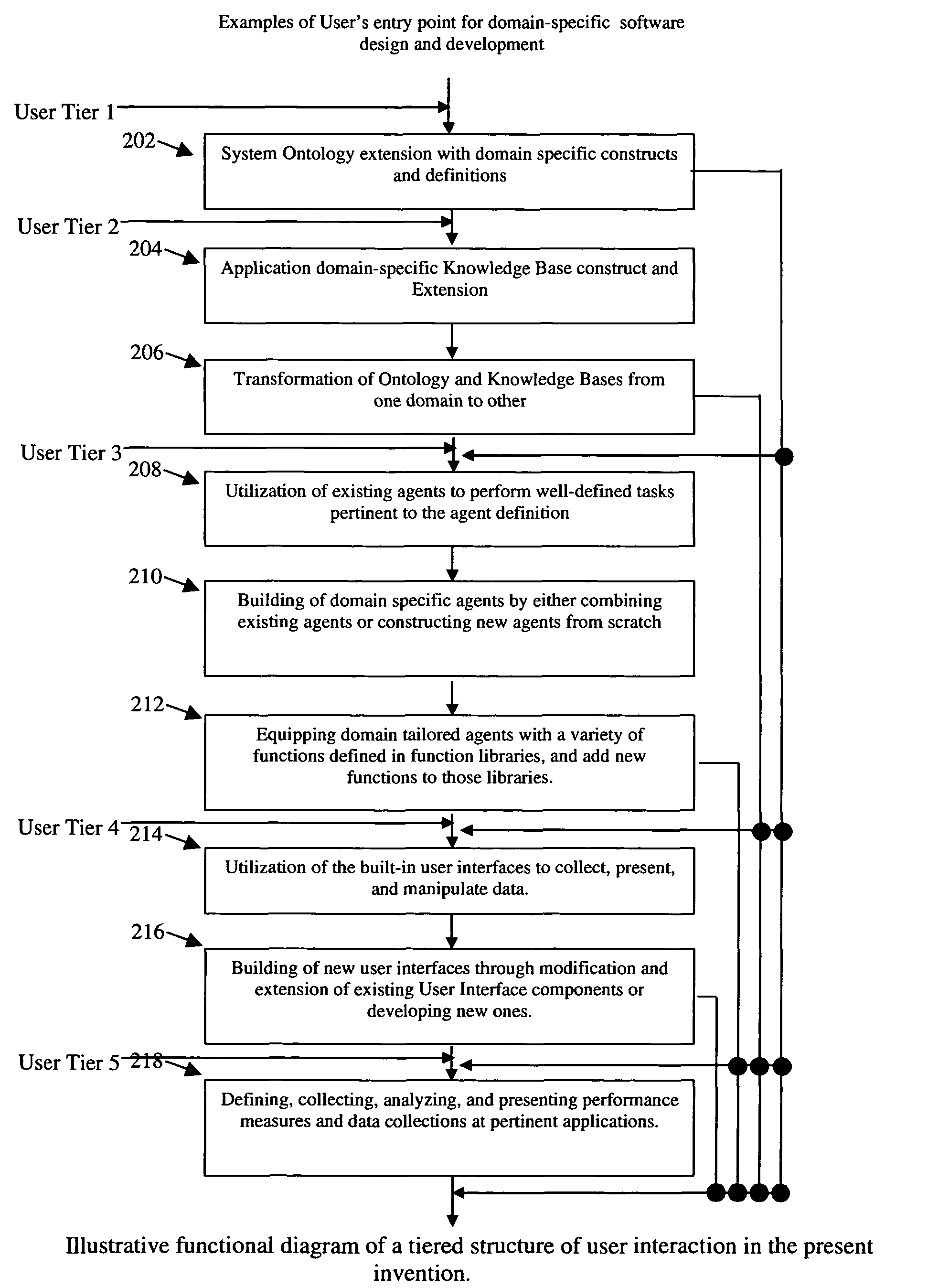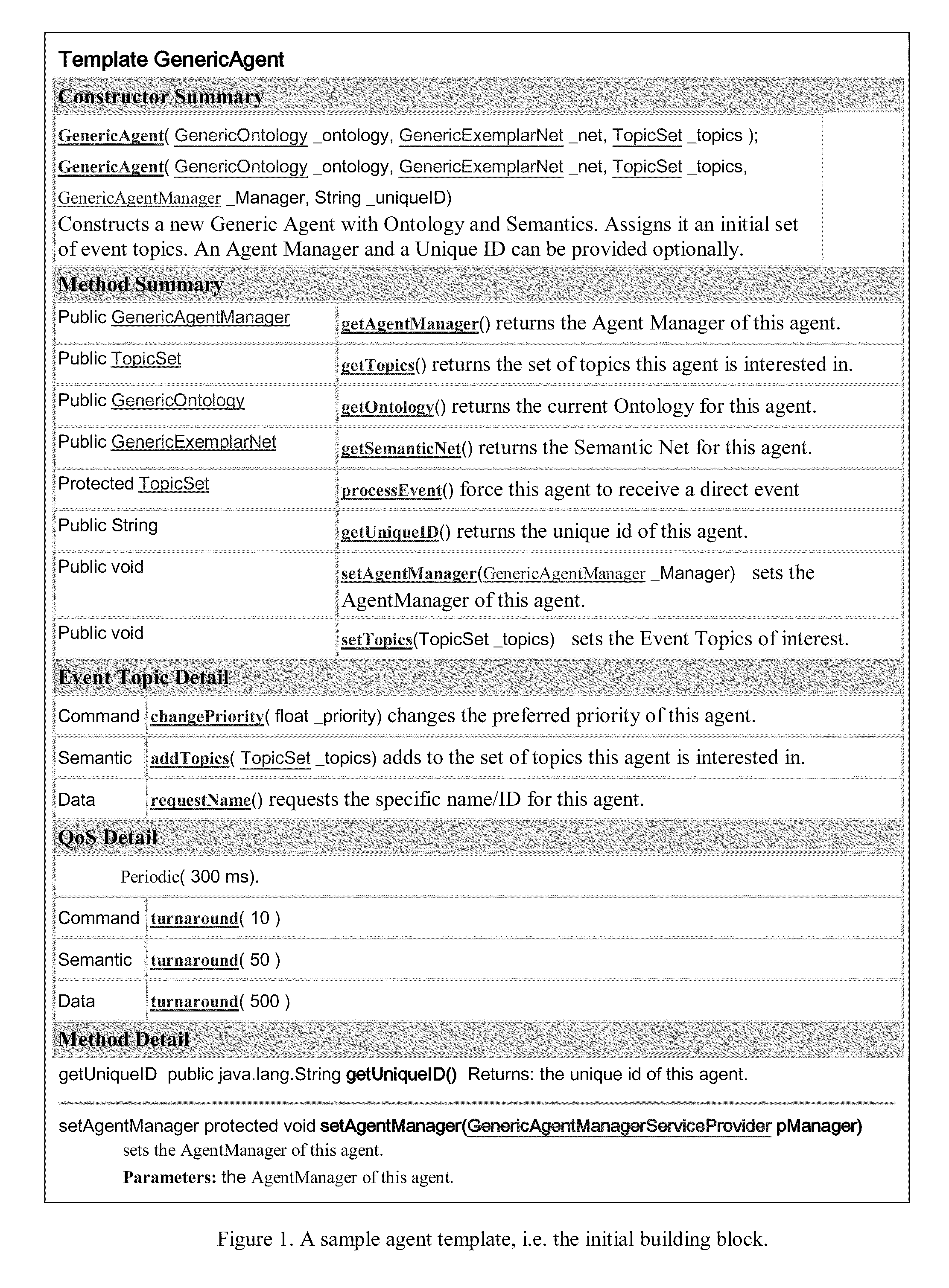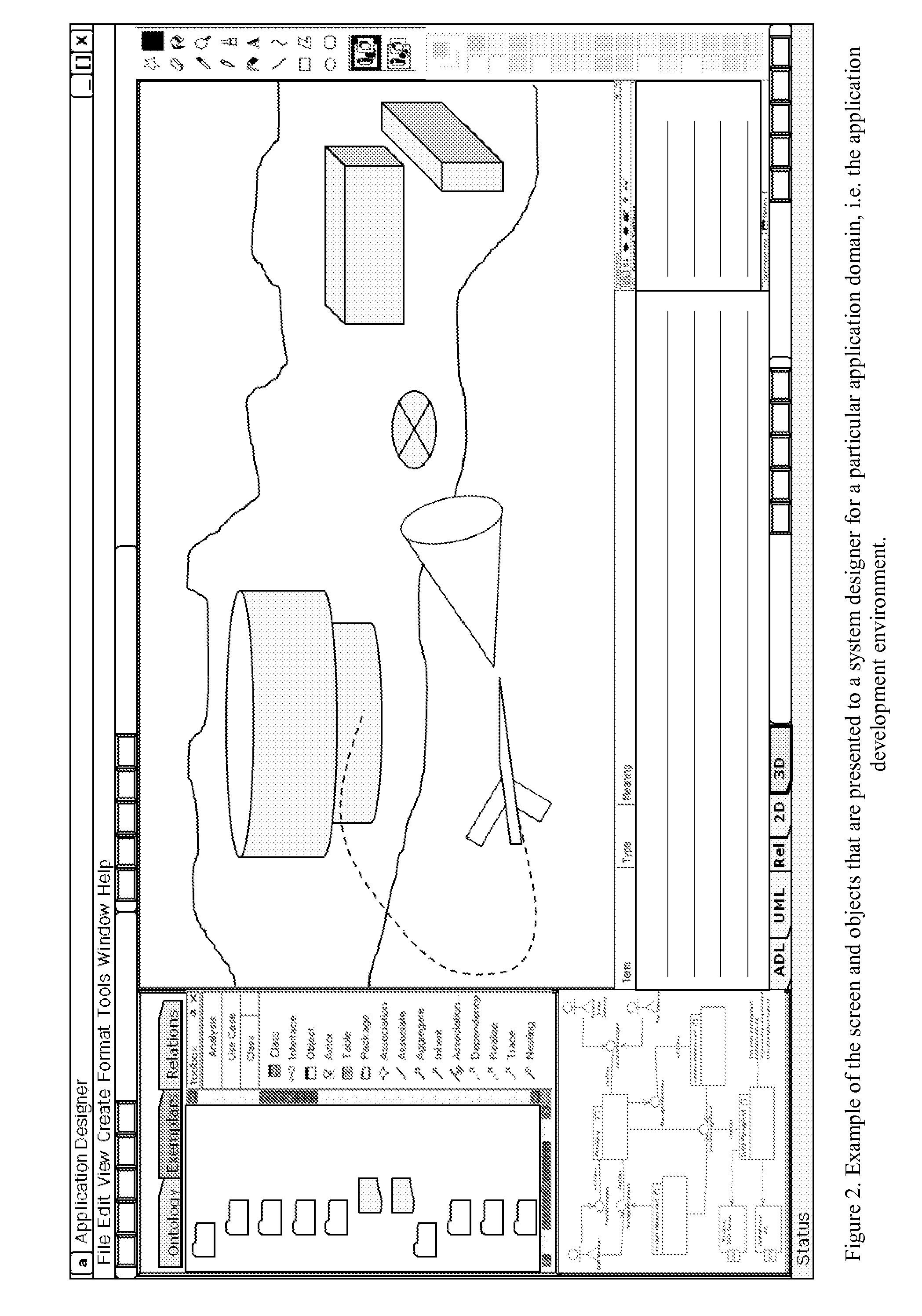[0016]The concept of software agents is currently one of the most exciting new developments in
computer software technology. Agents can be used to quickly and easily build integrated
enterprise software systems. On one hand, software agents, like people, can possess different levels of competence at performing particular tasks; on the other hand, software agents provide a powerful new method for implementing the next-generation software development systems that can be far beyond human's reach if without the functionalities it provides.Multi-Agent Systems Development
[0017]Multi-agent systems (MAS), which consist of multiple
software agent modules that communicate and cooperate with each other, can solve
complex problems on behalf of humans in
computer technology areas including military and civilian applications. One great benefit of multi-agent systems is their
scalability. Since they are modular, it is easier to add new agents to a multi-agent system than it is to add new capabilities to a
monolithic system.
[0018]In general in a MAS, (i) each agent has a partial capability to solve a problem, (ii) there is no
global system control, (iii) data and knowledge for solving the problem are decentralized, and (iv) the computation is asynchronous. The agents work collectively so that, as a group, their behavior solves the overall problem without disruption, conflict, and glitches.
[0031]Referring to the software
development environment and toolkit, software developers of agent systems have come a relatively unsophisticated way in terms of basing the software operations on a set of pre-specified functionality. For example, the whole field of
database design and implementation has not been evolved to keep with networked agent architectures. This is the case despite the fact that the way information is stored and retrieved has changed significantly in the past two decades along with the presence of huge data stores and warehouses developed over
the Internet. Today, information necessities for enterprise operations are kept separately on different machines on the
global network so that every authorized person has immediate access through the Web. The tremendous
advantage with this approach was that distributed
processing performed by local software agents could be done on different machines anywhere remotely. The added
throughput of these machines not only enhanced efficiency, but also made the architecture easily expandable since new
data resources could be easily added to the existing network without disrupting the existing systems. Also, applications started becoming more complex in terms of knowing which
data resources to connect as well as keeping track of the data schema on each one of the resources. These tying links make the use of
intelligent agent architecture necessary for allowing a user to submit his / her query and preferences to an agent which will know which
data resources on
the Internet to get the information from. In accordance with at least one embodiment of the present invention, however, the data resources need a generic agent interface that will allow this agent to accurately state a query and retrieve the results, thus allowing the decision-making Web-agent to act autonomously as a connecting point for all the data resources.
[0036]It has also been determined that the field of MAS software development can benefit significantly by focusing on the development of advanced software structures through employment of agent-based technologies. Given the characteristics of most agent application domains and situations, it seems that the most natural way to provide timely and critical support to end-user software development processes is to have a collection of distributed, autonomous problem solving agents that are scalable, adaptive, and readily assembled and placed in operation.
[0046]Even further, the present invention provides, in at least one embodiment, an optional methodology for creating, maintaining, and progressively updating an agent systems
development environment. The resulting agent
development environment provides automated and inherent security of execution,
data integrity and balanced
resource utilization based on methods and / or functionality used for agent construction. Since agents and their interactions are carefully constructed in accordance with the present invention, the agent
system development environment and incorporated functionality / tools in at least one embodiment can verify and guarantee certain
security properties of the agent applications being developed. Such optional automated validation of the system
security properties includes behavior
verification, resource
usage analysis, worst-case and average performance guarantees,
data access control, information integrity, and / or management of uncertain information and others. Further, the advantageous and optional exemplar-based knowledge representation (KR) and semantic messaging model ensure that information and control is distributed only to agents that both have the need to know and have the capacity to process that information and requested tasks.
 Login to View More
Login to View More  Login to View More
Login to View More 


